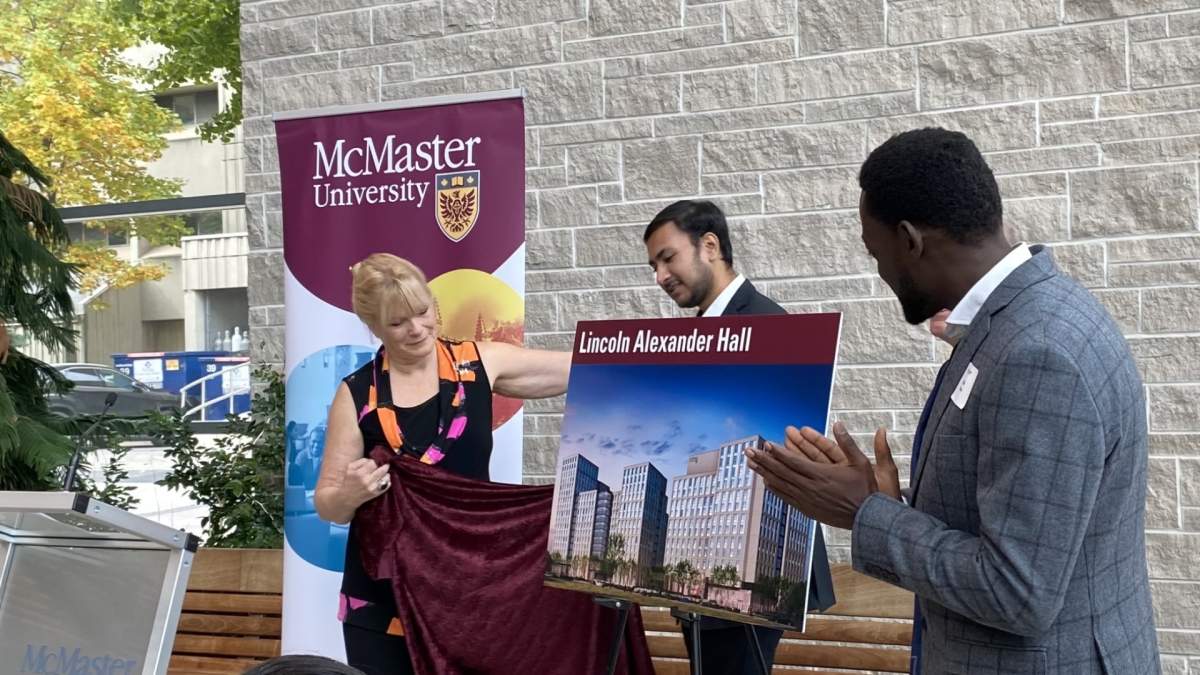McMaster University in Hamilton has announced its plans to build a new student residence named after the late Lincoln Alexander.

The facility on Main Street West between Forsyth and Dalewood avenues will house more than 1,300 students – primarily first-year undergrads – once it opens in fall 2026.
David Farrar, McMaster’s president and chancellor, said during a Thursday announcement about the residence that it was an easy decision to name it after Alexander, who graduated from the university with a Bachelor of Arts in history and political economy in 1949.
“As we considered what we would name the new residence, one person came to mind – an esteemed member of the McMaster and Hamilton community, whose legacy embodies the dedication to lifelong learning, social equity and civic leadership that we hope to instill in our students,” he said.
Lincoln Alexander Hall will be right on Hamilton’s planned light-rail transit line and will feature a fitness centre, quiet study areas, a dining hall, communal kitchens on each floor, an interior green space, underground parking and plenty of bicycle parking.
It will also include an intergenerational hub hosted by the McMaster Institute for Research on Aging that will encourage students and older adults from the community to socialize with one another.

Get breaking National news
Marni Alexander, who helped unveil the artist rendering of the residence during Thursday’s event, said her late husband would be “incredibly proud, honoured and humbled” to have the residence bear his name.
“I am absolutely certain and heartened to know that Lincoln’s values, his commitment to education, diversity, equality and inclusion will be espoused by McMaster University’s new student residence,” she said.
Construction will begin following the demolition of 14 vacant homes that have been fenced off for several years next to the campus.
Debbie Martin, McMaster’s assistant vice president of University Advancement, said the project will fill a void, as “there’s an extreme need in the community right now for student housing.”
The process of demolishing the houses is expected to take six to eight weeks.
The university said it is working closely with demolition partners to prioritize safety and ensure minimal disruptions to the neighbourhood, including “careful consideration of noise, dust, construction traffic and the safety of pedestrians near the site.”
The university also stressed that demolishing the buildings is the best way to safeguard the site and prevent incidents like the fire that led to the death of an unhoused person on the property two weeks ago.











Comments